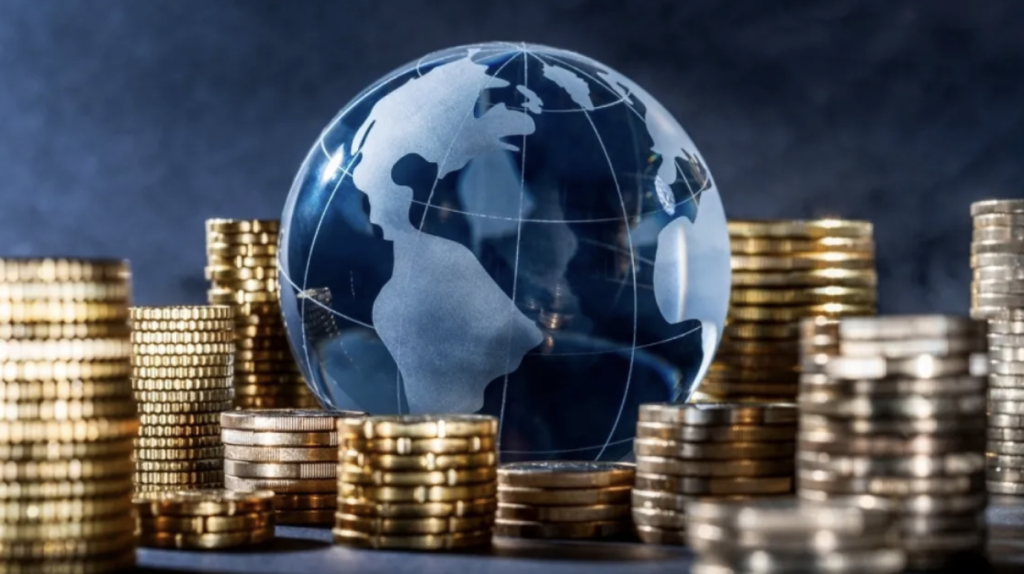In the 21st century, South Korean culture exploded in popularity, impacting and reshaping the global music, film, and food industries. While modern media tends to define a nation’s power in terms of its military might, ultimately, power is a state’s ability to influence others. Soft power refers to a state’s cultural influence, while hard power refers to its military and economic strengths. Korean soft power is not a spontaneous phenomenon, but a result of decades of resource accumulation. Likewise, a country’s military might be built on its economic and industrial base. Wealth, the ‘material resources that are available to a state’ and the ability to use said resources, therefore, leads to the increase of both hard and soft power. As wealth is the underlying foundation of power, this essay will focus on how nations acquire resources to answer the question of how nations become powerful and wealthy. Nations accomplish this primarily by initiating technological innovation, fostering human capital growth, and dominating trade.
First, countries drive innovation. Technological innovation rejuvenates economies and facilitates industrialization. Industrial economies can mass-produce commodities, allowing nations to efficaciously manufacture goods and utilize raw materials. The American steel industry demonstrates the economic benefits of innovation. In 1857, the English engineer Henry Bessemer developed a way to mass-produce steel at low prices. Entrepreneurs like Andrew Carnegie capitalized on the opportunity, and in 40 years American steel production had risen from 13,000 tons to 11,227,000. This fueled the growth of America’s infrastructure and weaponry, vastly increasing its hard power.
Second, countries promote human capital. Human capital, encompassing the knowledge, skill, and experience of workers, drives both trade and innovation. Countries accomplish this mainly by increasing national education levels. Education allows citizens to pursue scholarship and innovation. These developments often lead to pioneering policy-making and political-economic reforms, freeing up more human capital. In the 1970s, South Korea experienced a massive expansion in educational opportunities under President Park Chung-Hee, which contributed to Korea’s miraculous growth. The increase in the levels of education produced intelligent workers and future-thinking intellectuals who were able to enact changes that further increased human capital development.
Finally, countries dominate trade through geopolitical power. The British Empire accomplished this through a system of imperialistic colonialism, in which it extracted raw materials from its colonies, vastly increasing its stock of resources. The cheaply extracted resources were then manufactured in England and sold in colonial markets at high prices. This enriched and empowered the Empire’s military, allowing it to open more markets by force. When Chinese officials attempted to suppress the lucrative opium trade, for example, the British waged a victorious war against China, which gave Britain massive trade advantages. Trade thus starts a positive feedback loop, where profit enhances hard power and the ability to influence nations for further gains.
Overall, a nation accomplishes three things to accumulate wealth, which increases its hard and soft power. It produces innovative technology and allows for an industrialised economy such as in the American steel industry, it fosters human capital growth through educational expansion as highlighted in South Korea, and it dominates trade, as exemplified by the British Empire. While a country’s cultural influence and military may be the most eye-catching displays of might, its economic wealth is the foundation on which these other forms of power are based.
Bibliography
Boyd Metals Blog.Made in America: The Past, Present, and Future of the Steel Industry.” [https://blog.boydmetals.com/the-past-present-and-future-of-the-american-steel-industry#:~:text=With%20the%20help%20of%20major,was%20more%20influential%20or%20powerful/last accessed: 22nd December 2023]
Beckley, M. “The Power of Nations: Measuring What Matters”. International Security 43:2 (2018): 7-44
Encyclopædia Britannica [website], “British Empire”, 2023. [https://www.britannica.com/place/British-Empire/last accessed: 21st December 2023]
Encyclopædia Britannica [website], “Opium Wars”, 2023. [https://www.britannica.com/place/British-Empire/last accessed: 21st December 2023]
Gordon, J. “Andrew Carnegie and the Creation of U.S. Steel.” [https://billofrightsinstitute.org/essays/andrew-carnegie-and-the-creation-of-us-steel/last accessed: 22nd December 2023]
Isozaki, N. Education, Development, and Politics in South Korea. Emerging States at Crossroads. Tsunekawa, k., Todo,Y. 209. Springer Nature, 2019.
Kim, M. “The Growth of South Korean Soft Power and Its Geopolitical Implications”. Journal of Indo-Pacific Affairs 5:6 (2022): 123-138
Kishtainy, N. A Little History of Economics. Yale University Press, 2018: 109-114
Mearsheimer, J. The Tragedy of Great Power Politics. W.W. Norton & Company, 2001: 60
Tellis, A., Bailly, J., Layne, C. and McPherson, M. Measuring National Power in the Postindustrial Age. RAND Corporation, 2000: 1-33

